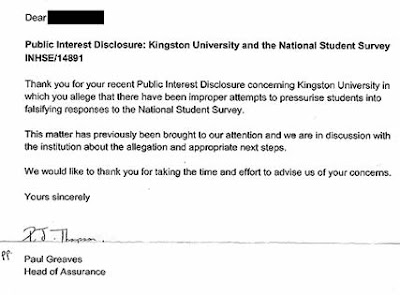 Purpose
Purpose – Workplace bullying has been a subject of increasing study in recent years, particularly in the UK, Scandinavia and Australia. Health effects of workplace bullying are often cited as an undesirable outcome of being bullied, yet these health effects have not been studied systematically. This study was small and exploratory. The overall aims were to explore support staff perceptions of the nature and causes of bullying, and to examine the perceived relationship between bullying and self-reported health complaints.
Findings – A total of 42 employees responded, 19 reporting experiencing one or more forms of bullying in the previous two years, while 17 had witnessed colleagues being bullied. The top four bullying tactics ranked in terms of frequency of reporting were undue pressure to produce work, undermining of ability, shouting abuse, and withholding necessary information. When bullying occurred it was likely to be by a line manager. Major findings are that headaches, loss of confidence, loss of self-esteem, fatigue/listlessness, and stress are the most commonly reported health consequences of being bullied, and that these syndromes are associated with a decrease in workplace morale, increased stress at home, and propensity to seek alternative employment.
The context of the researchThe motivation for the research came partly from the writer's own experiences of being bullied and partly through witnessing and hearing “through the grapevine” of the bullying of colleagues. The writer (a non-health professional) had experienced bullying in both primary and secondary school and naively thought that bullying was something that did not happen, or more to the point would not be tolerated or condoned, in the workplace. This proved not to be the case, and the writer in her early working life accepted that some people were natural “victims” and others “bullies”, and this was the way of the world. However, in the latter part of her working life, this has been called into question and bullying behaviour, it appears, may occur for many reasons and anyone may become a target of bullying at some stage in their career. Thus, when the opportunity to conduct some research for a dissertation arose, the researcher was keen to gain insight into the perceived reasons for bullying and obtain details of support mechanisms, effects on relationships and health consequences. While working as a member of support staff in an educational establishment the researcher undertook a small but intensive study of bullying experiences amongst support staff...
Bullying and position in the hierarchyResearch undertaken by Björkqvist et al. (1994a, b) in a university setting found that position in the hierarchy was related to bullying, in that individuals in lower administrative and service jobs were more likely to be bullied and those in superior positions were more often identified as the perpetrators of bullying. Similarly Marmot et al. (1991) in the Whitehall II study concluded that bullying and stress were more frequent in lower grades of staff.
The issue of bullying and unequal power situations is particularly relevant to this study, as there is a great disparity in status between academics and support staff. While universities may deem it desirous to address equal opportunity issues, they are, in the twenty-first century, still mainly entrenched in forms of institutionalised sexism and intellectual elitism...
ConclusionStudying bullying at work presents considerable difficulties, as the breadth of the phenomenon encompasses many different forms of behaviour and reaction. Bullying, or the more generic “harassment at work”, is claimed to be a more crippling and devastating problem for employees than all other work-related stress put together (Einarsen, 1999). Stress can also have serious implications for the efficient functioning of the organisation. Increased sickness absence, high turnover of staff, low morale, and poor performance can all be consequences or indicators of bullying in the workplace. Cox (1993) suggests that mental health problems are amongst the fastest growing sources of days lost from work. In financial terms absenteeism, loss of trained personnel, higher recruitment costs and reduced productivity can add up to a heavy burden for organisations. The costs of stress, therefore, are paid for both by the suffering of the individual and the financial cost to the organisation.
Bullying is morally as well as professionally unacceptable, and impacts not only on the health of victims and their colleagues but their families too. Job stress due to bullying can have serious and deleterious effects on family life that may manifest themselves in increased welfare costs (Cohen et al., 1997). While it is acknowledged that problems exist in relation to proving the causal link between bullying and ill health, employers have a vicarious duty of care towards its employees. It is therefore essential that employers are aware of such issues and of potential signs of bullying behaviour. Consequently there is an urgent need to address this issue by documenting incidents, finding the source of the abuse and what and who perpetrates it, and developing a procedure to eliminate the abusive behaviour. Any policies, to be effective, must be guided by research...
By: Mary Thomas, School of Education, University of Southampton, Southampton, UK - Health Education; Volume: 105 Issue: 4; 2005
 In her book 'Bad Leadership', Barbara Kellerman suggests some tips for those in power, to help them avoid turning bad. These include:
In her book 'Bad Leadership', Barbara Kellerman suggests some tips for those in power, to help them avoid turning bad. These include:



